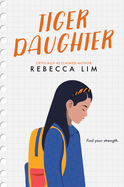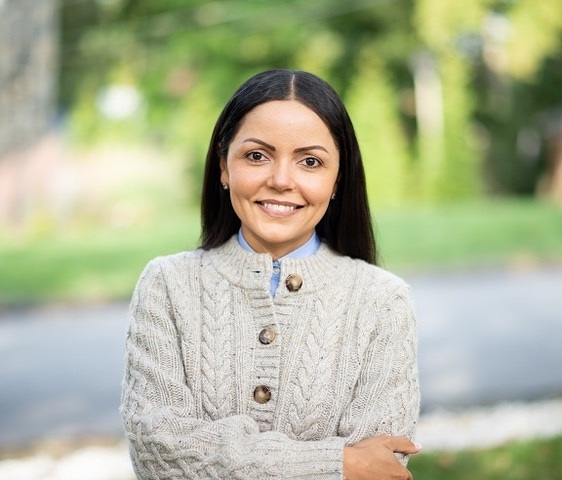 |
| photo: Hassan Malik Photography |
Melissa Adelman, a first-generation American with parents from Haiti and Chile, was born and raised in the Washington, D.C., area. She is a senior economist at the World Bank. During the Covid pandemic (and the onset of middle age), she pursued her long-held dream to write fiction. Her first novel, What the Neighbors Saw (Minotaur, June 20, 2023), features a couple on the cusp of their dreamed-of life in the perfect neighborhood--until one of their neighbors is found dead alongside the Potomac River.
Handsell readers your book in 25 words or less:
You know that Zillow listing you love? Imagine buying it, only to find the new neighbors are hiding ugly secrets in their beautiful homes.
On your nightstand now:
I just finished Han Kang's The Vegetarian (translated into English by Deborah Smith). It's a brutally intimate depiction of family trauma, written in spare, almost poetic language. Next, I'm excited to read Victor LaValle's Lone Women, a horror-mystery-historical fiction set in the early 1900s American West.
Favorite book when you were a child:
As a child, it often felt like every book was a new revelation, a new world to lose myself in, a new connection to people I otherwise would never know. So it's tough to pick just one! The first book I remember staying up all night to finish was The Good Earth by Pearl S. Buck. Life in 1920s rural China was heartbreakingly hard, and I felt too invested in the fate of the characters to stop before the end.
Your top five authors:
Toni Morrison, Isabel Allende, Barbara Kingsolver, Min Jin Lee, and Edwidge Danticat.
Book you've faked reading:
I don't think I've ever started a novel that I didn't finish, but there have been some that I just didn't connect with at all--like The Catcher in the Rye and Crime and Punishment. I remember having to read these in high school and, in each case, thinking to myself, what is this guy's problem? Maybe now as the mother of boys, they might hit differently, but I'm not eager to pick them back up.
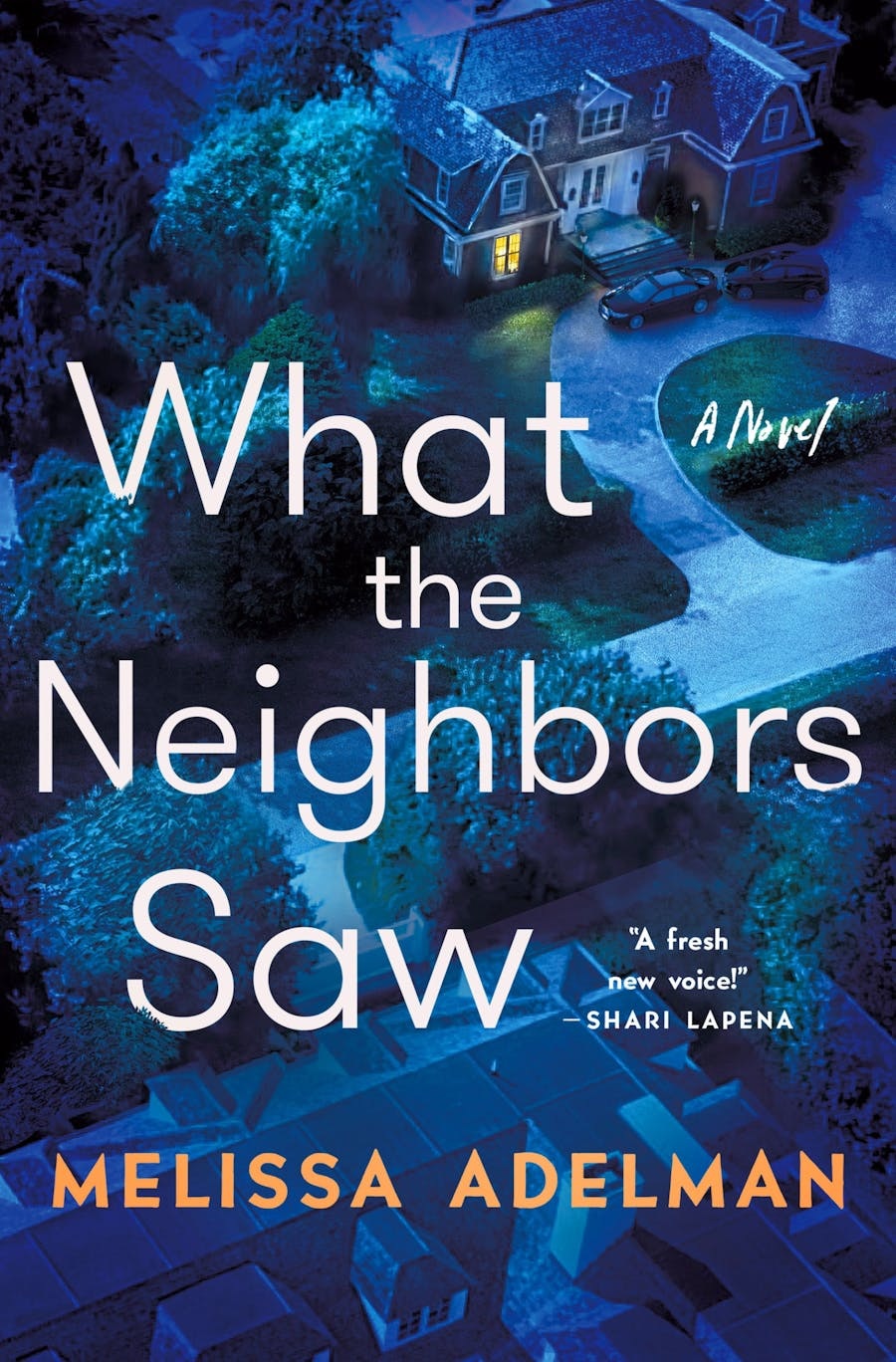 Book you're an evangelist for:
Book you're an evangelist for:
The Inheritance of Loss by Kiran Desai. I first read this when it came out in 2006, before terms like "intergenerational trauma" and "cultural bereavement" were part of our social lexicon. It was my first time seeing these concepts expressed in such a beautiful, engrossing way, and I identified with it deeply.
Book you've bought for the cover:
My favorite thing to do at an airport! That's how I read House of Gold by Natasha Solomons, with its gilded cover and promise of a lavish family drama. It certainly delivered, with an epic and intimate story that was so engrossing that my flight went by in a heartbeat.
Book you hid from your parents:
My mother had an old copy of Xaviera Hollander's The Happy Hooker, a racy memoir from the early 1970s, which I found on a bookshelf in our living room at around 12 or 13 years old. I remember reading it when I was home alone and being so careful to put it back exactly where it belonged so my mother wouldn't notice.
Book that changed your life:
Every book I've ever loved! Okay, but really, maybe more than anything else (academic study, travel, talking to real people), novels have expanded and enriched my worldview. As both a nosy and reticent person, I probably should have studied psychology instead of economics so I could pry into other people's lives as a legitimate living. But since it's too late for that, I'll stick with reading.
Favorite line from a book:
"It all means more than I can tell you. So you must not judge what I know by what I find words for." This, and virtually every other line, in Gilead by Marilynne Robinson.
Five books you'll never part with:
Books are the only thing I hoard, so the answer is that probably I'll die surrounded by stacks of old paperbacks. Running my eyes over the creased spines crammed together on my bookshelves, remembering what I loved about each story, and sometimes pulling one out to read anew: I enjoy that. But one particular book I cherish is my hardcover copy of One Hundred Years of Solitude by Gabriel García Márquez, which I received for the Detur Book Prize as a sophomore at Harvard. It was a moment of much-needed affirmation that I belonged there, that I was worthy.
Book you most want to read again for the first time:
Any of the great novels with a big reveal--from Agatha Christie's And Then There Were None that's so smartly structured and so intensely unnerving that it feels like I've been to that island in my nightmares, to Peter Carey's Oscar and Lucinda, which allows its readers to fool themselves into thinking it's a certain kind of love story and then deftly turns things upside down, a literary sleight of hand that I just loved.
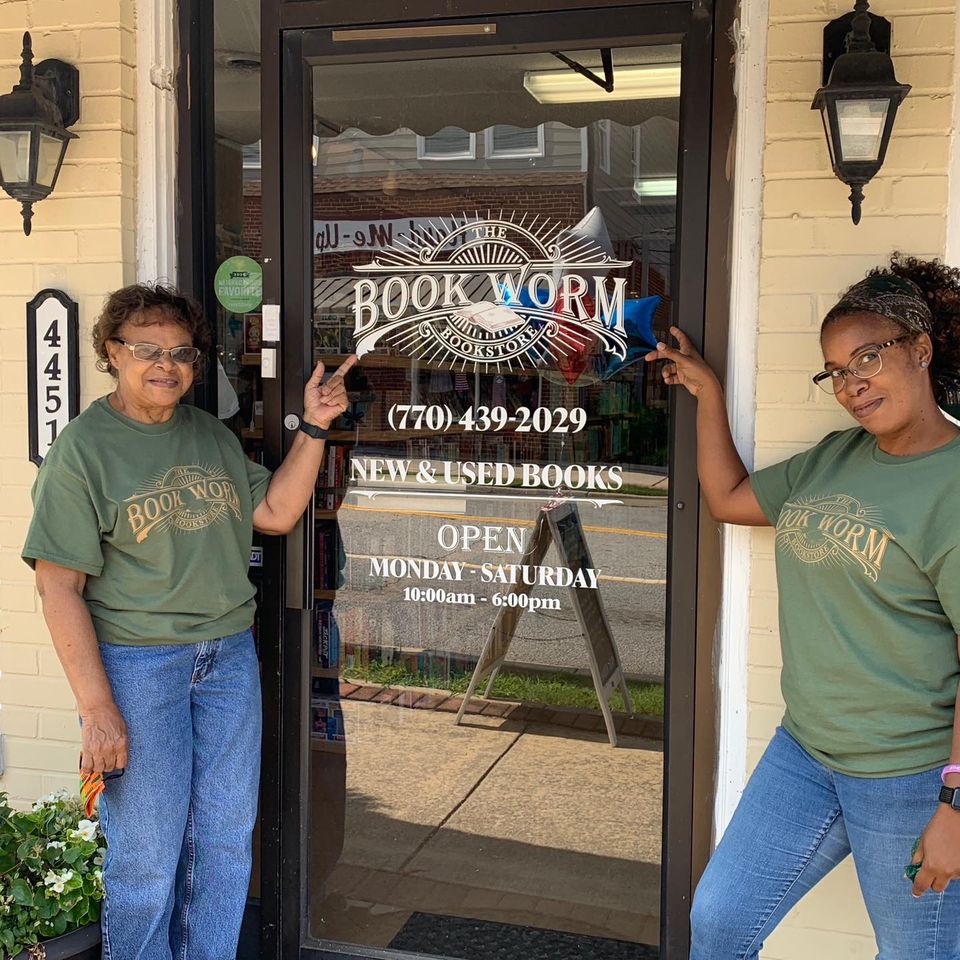 "Why is The Book Worm open today? I stand on the shoulders of my ancestors. One of the MANY stories that my mother has shared: As a young adult my mother, her best friend and my grandfather were traveling to the south. Stopped to eat and my mother and her friend headed for the front door. Her friend being much lighter walked right in before my grandfather could stop her. My mother was about to follow--being told you can not walk in this way. That experience stuck with my mother--so when my sister and I had planned to move to the South... well we all know that conversation.
"Why is The Book Worm open today? I stand on the shoulders of my ancestors. One of the MANY stories that my mother has shared: As a young adult my mother, her best friend and my grandfather were traveling to the south. Stopped to eat and my mother and her friend headed for the front door. Her friend being much lighter walked right in before my grandfather could stop her. My mother was about to follow--being told you can not walk in this way. That experience stuck with my mother--so when my sister and I had planned to move to the South... well we all know that conversation. 




IPC.0204.S3.INDIEPRESSMONTHCONTEST.gif)




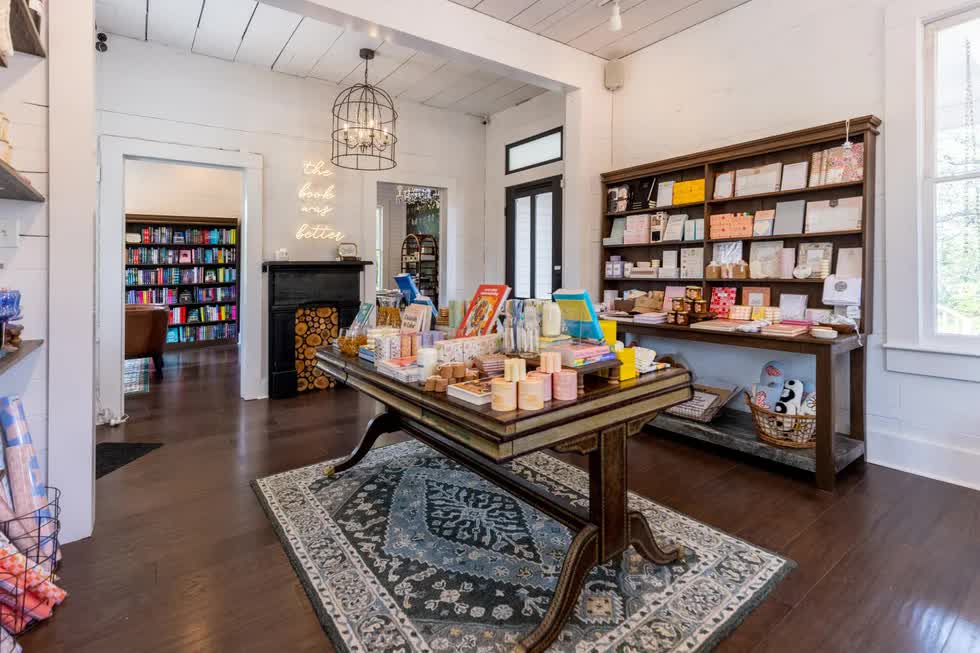

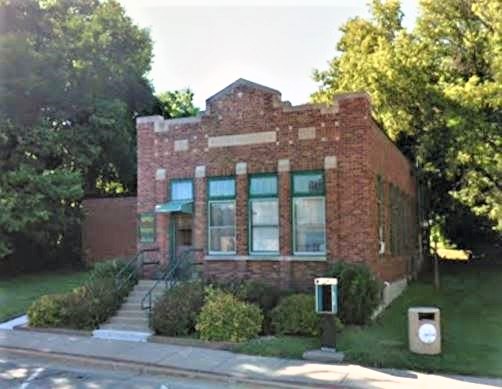

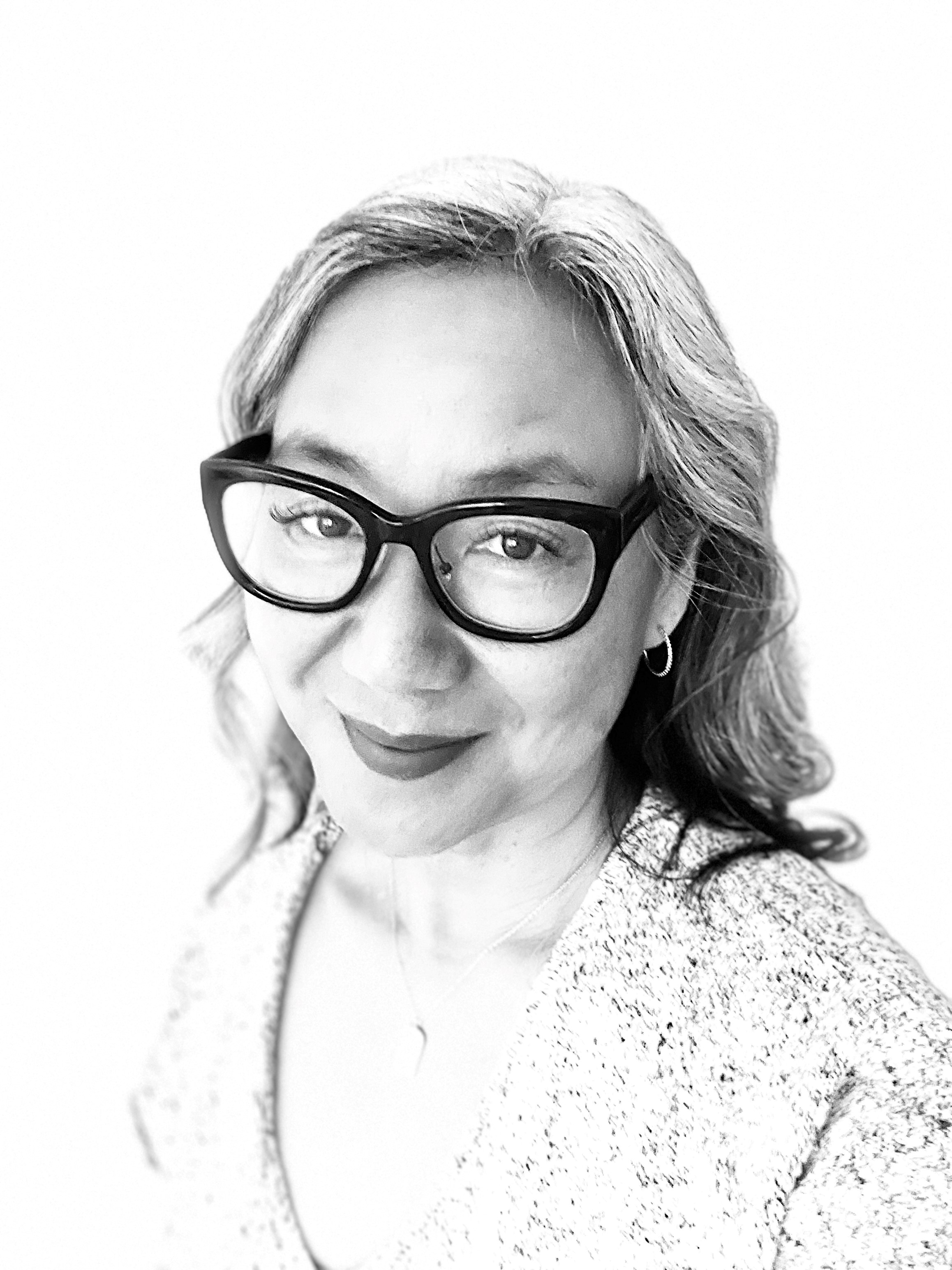
IPC.0211.T4.INDIEPRESSMONTH.gif)
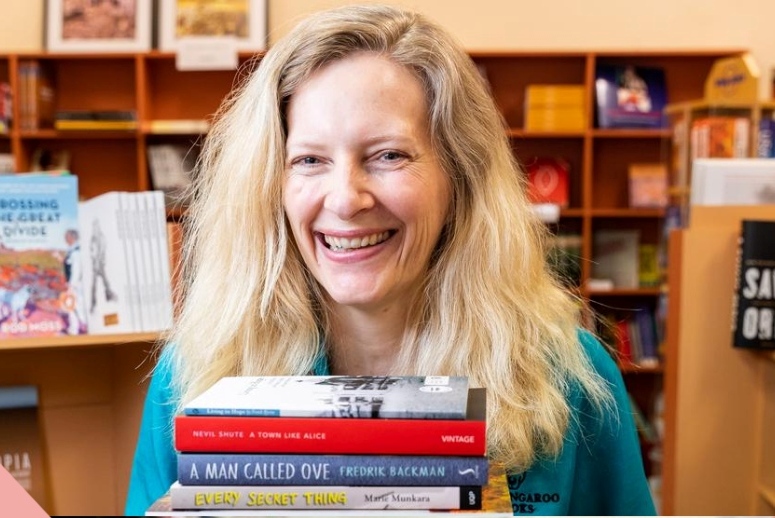
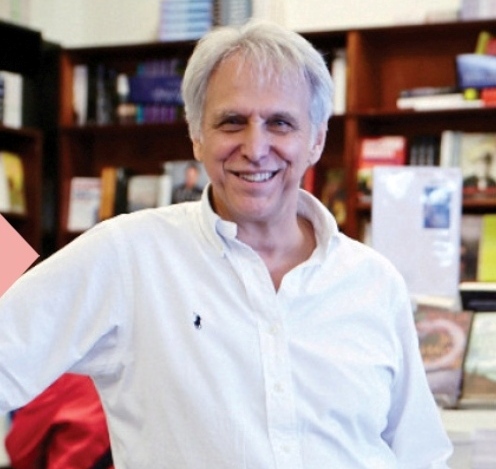
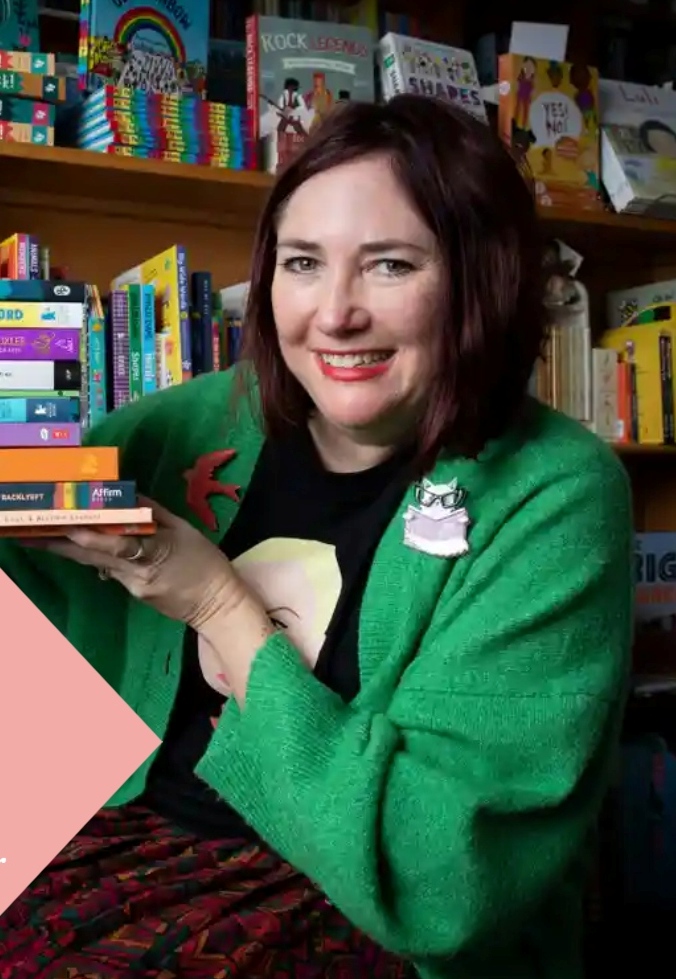
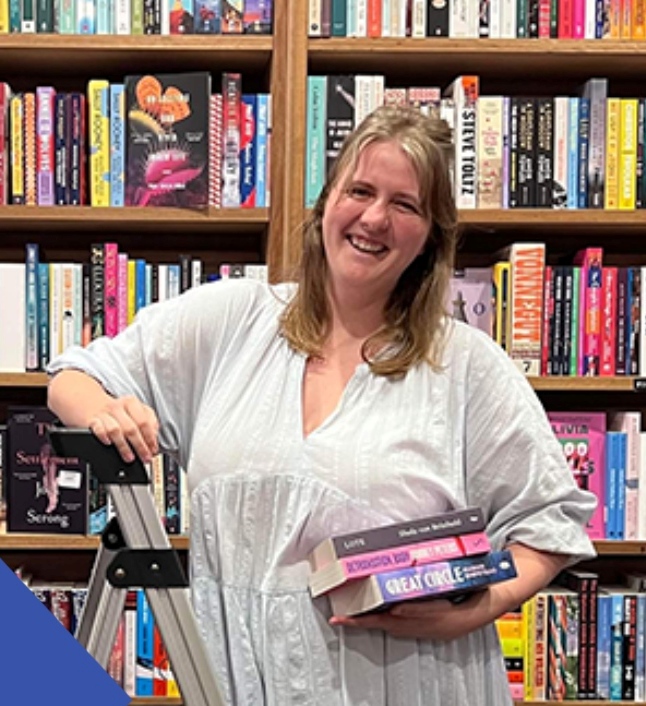
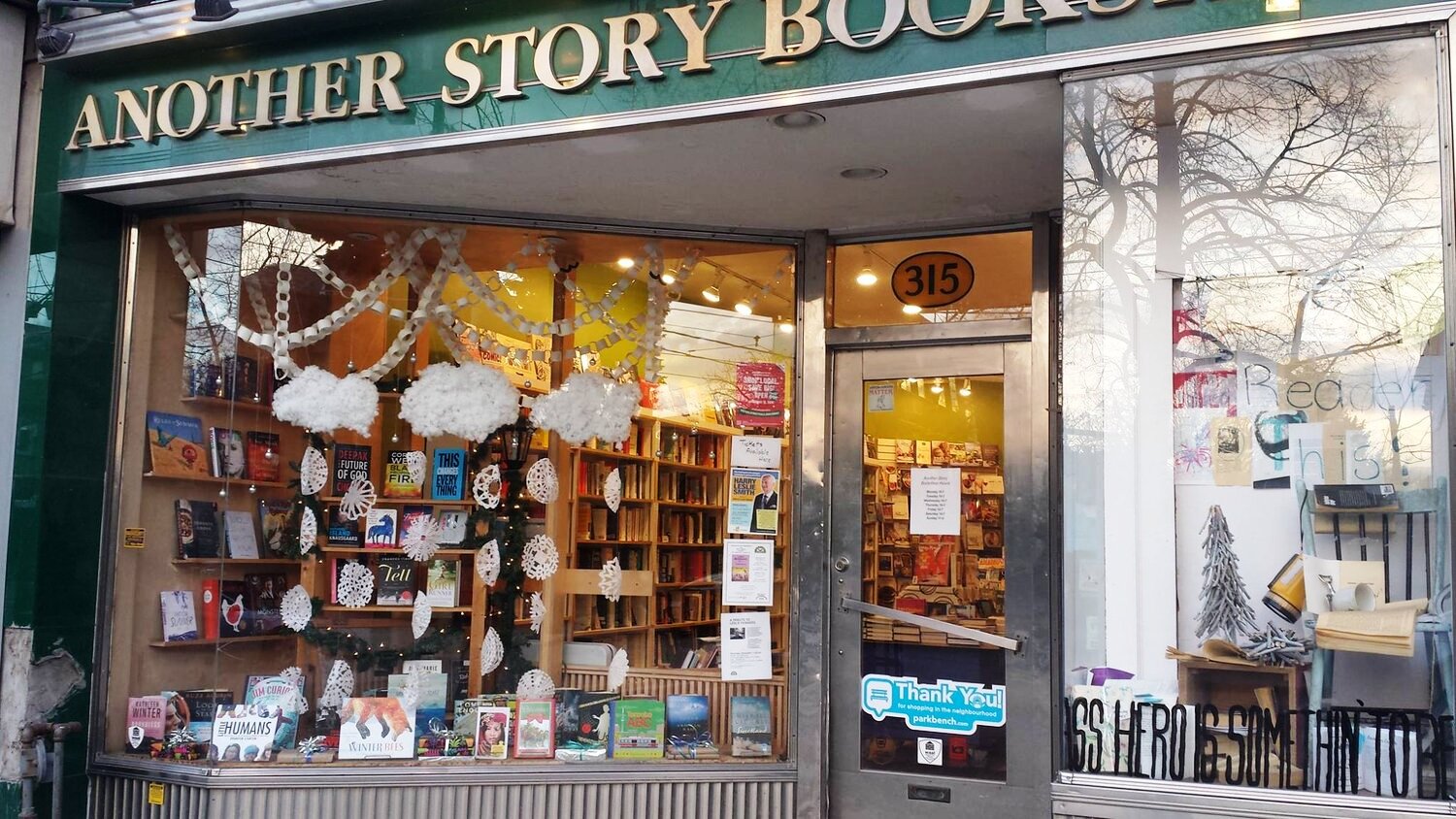 "Our sales are robust," said Anjula Gogia, retail manager and events co-ordinator at
"Our sales are robust," said Anjula Gogia, retail manager and events co-ordinator at 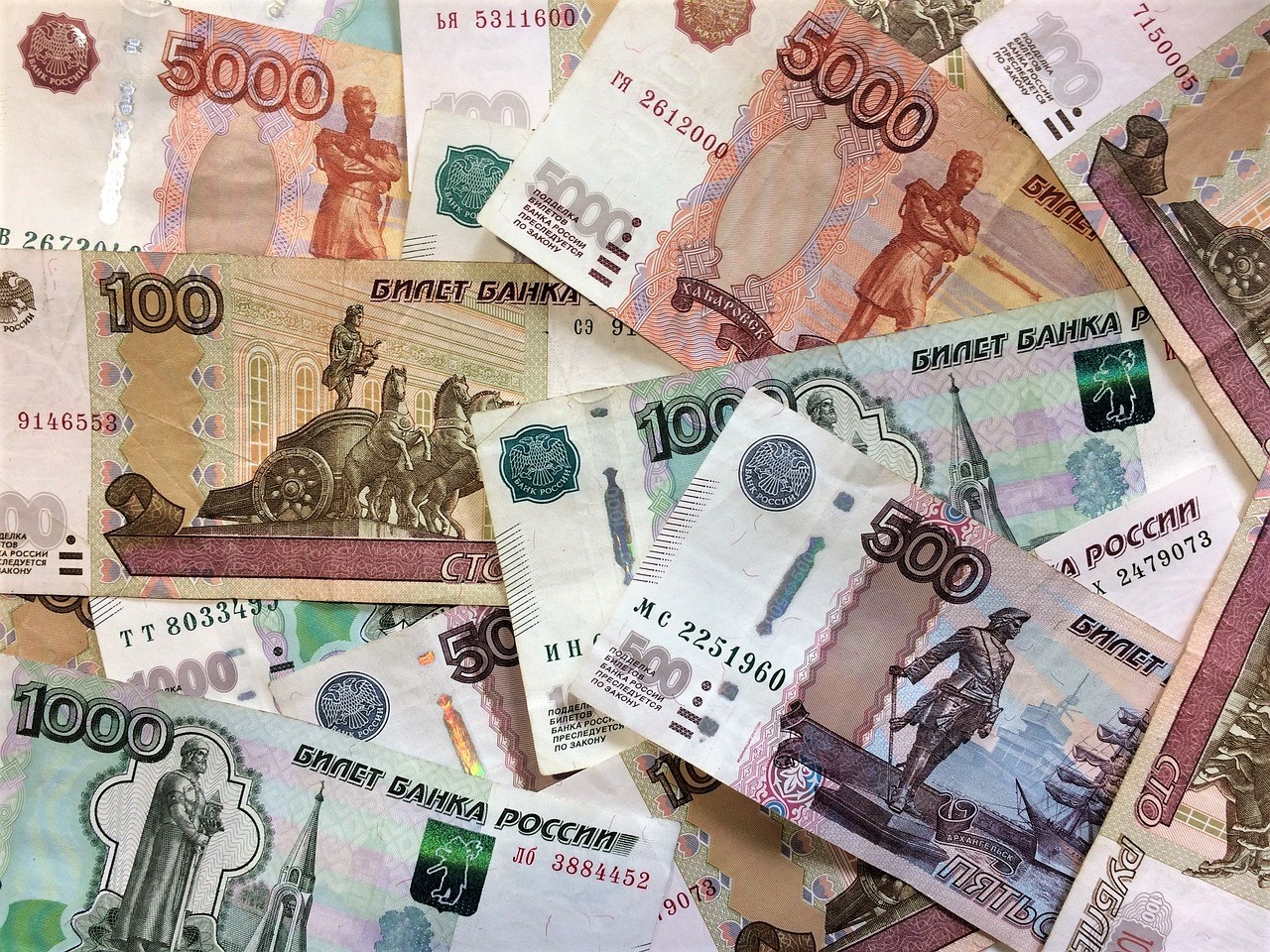 U.K. writers are
U.K. writers are 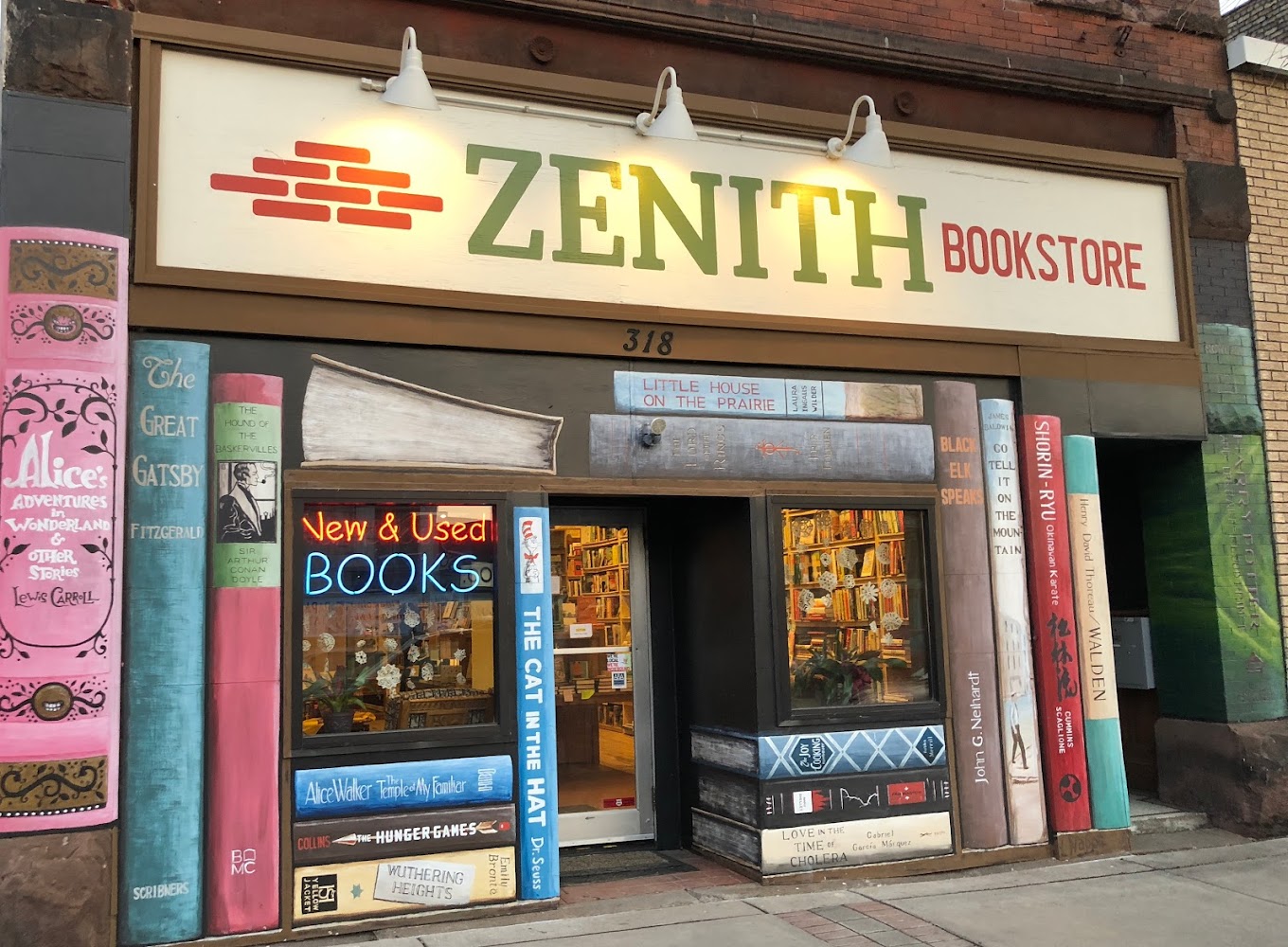 Zenith Bookstore
Zenith Bookstore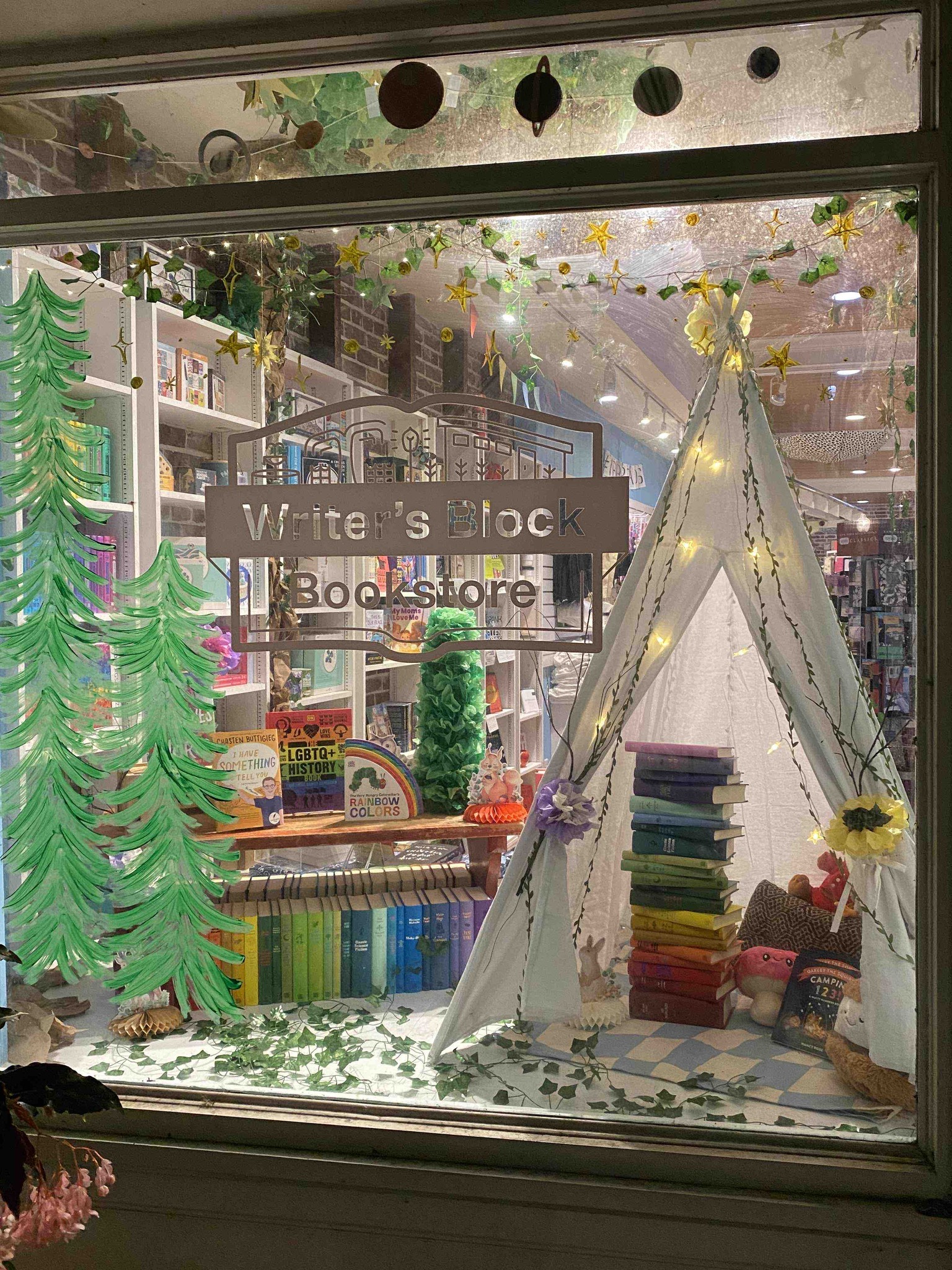
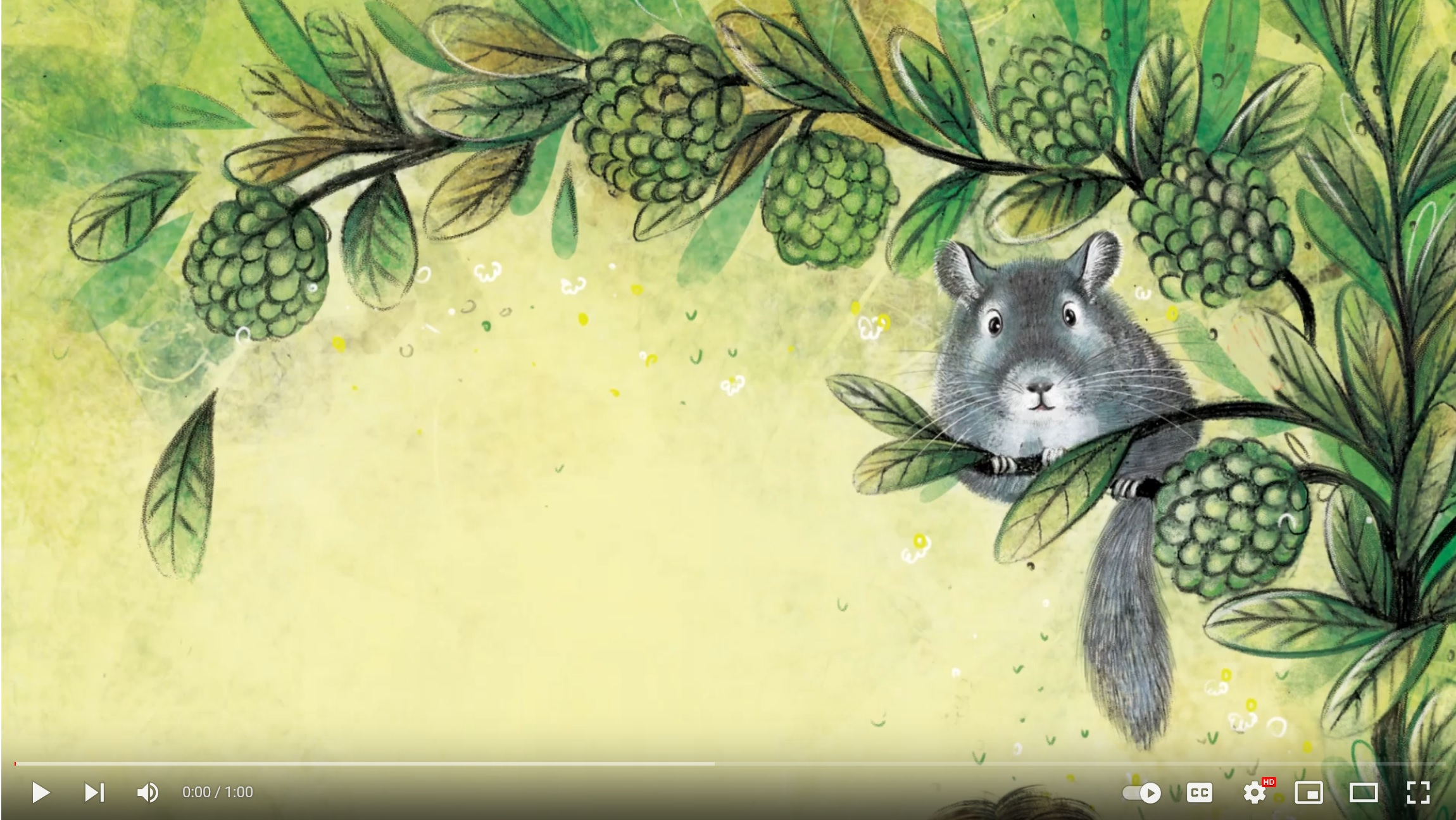 Calvin and the Sugar Apples
Calvin and the Sugar Apples
 Book you're an evangelist for:
Book you're an evangelist for: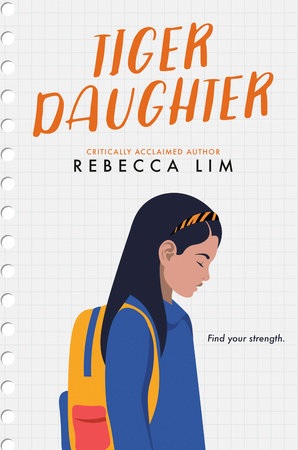 Tiger Daughter by Australian author Rebecca Lim (Mercy series) arrives Stateside already highly celebrated. Lim's novel might initially suggest another familiar immigration story, but her deeply empathic observations ensure an immersive coming-of-age exploration that should resonate regardless of readers' backgrounds.
Tiger Daughter by Australian author Rebecca Lim (Mercy series) arrives Stateside already highly celebrated. Lim's novel might initially suggest another familiar immigration story, but her deeply empathic observations ensure an immersive coming-of-age exploration that should resonate regardless of readers' backgrounds.